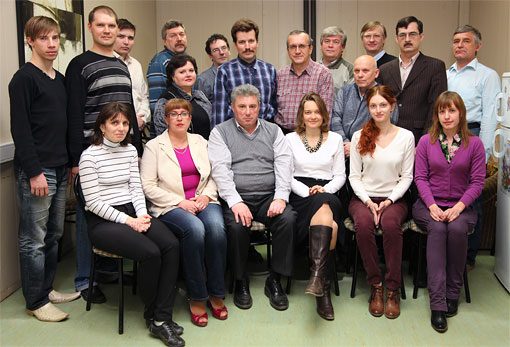Terahertz spectroscopy department
Research activity
For a few decades now the actual problems in the gas analysis field have been associated with tracing microimpurities in high-purity substances toward industrial needs (particularly the hi-tech industries) and development of novel methods of medical diagnostics and devices for continuous monitoring of atmosphere in environmental research and security systems. Most of these applications call for precision quantifying of substance in a multicompnent gas mixture, which requires high sensitivity at a 30−100 ppt level. The only approach to date that ensures a near-theoretical-limit sensitivity along with a high spectral resolution (about tens kHz) limited just by the Doppler effect is the nonstationary spectroscopy based on coherent spontaneous radiation.
Our group develops and elaborates the nonstationary spectrometers of the THz range and employs them for various applications. The advantages of the devices include high sensitivity, high spectral resolution, on-line measurements and easy-to-use configuration. To provide above characteristics we also design and elaborate suitable radiation sources and receivers.
The cornerstone of our approach involves frequency multiplication of high-stable reference synthesizers. The multipliers based on superlattice structures, which are shown to be effective for frequency transformation and detection, since the lower values of inertness and parasitic capacitances and presence of negative differential conductivity (up to 1 THz) on the volt-ampere characteristic.
Structure
Head of the department
Vaks Vladimir, PhD in Physics.
Our group consists of more than 10 experts in the field of molecular physics, microwave spectroscopy and techniques. We have a wide experience in the development, elaboration and application of microwave devices and spectroscopy. The base of the team is highly professional engineers and physicists who have been working in the field more than 20 years. The young scientists (PhD students, master and bachelor students) take part in departments work together with experienced scientists and engineers.





